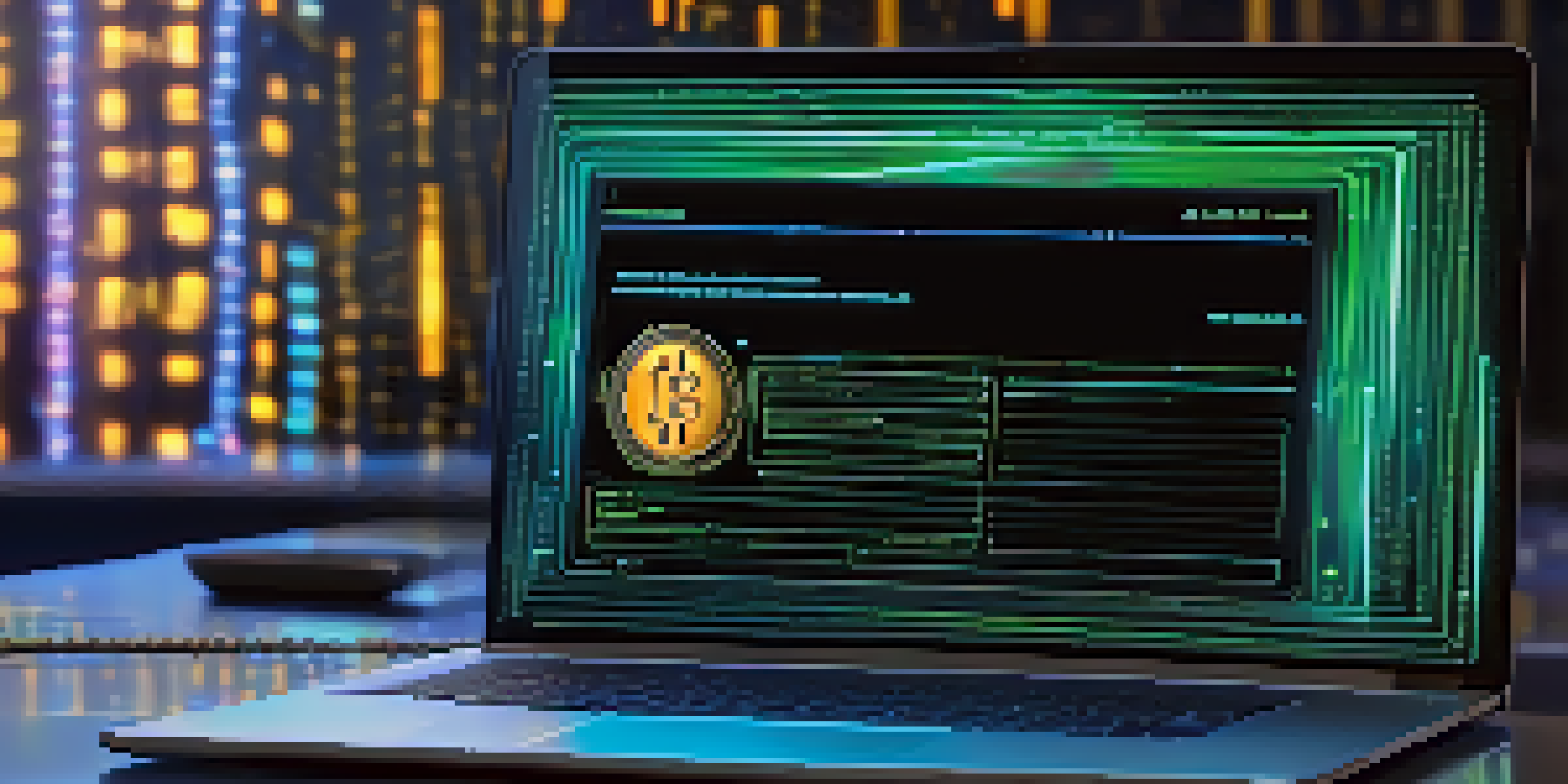How Encryption Safeguards Bitcoin Wallets Against Cyber Threats

Understanding Bitcoin Wallets and Cyber Threats
Bitcoin wallets are digital tools that store your cryptocurrencies, similar to how a physical wallet holds cash. However, these wallets can be targeted by cyber criminals who seek to steal your assets. Understanding the types of threats, such as phishing attacks and malware, is crucial to safeguarding your investments.
What Is Encryption and Why It Matters
Encryption is like a secret code that transforms your data into a format that only authorized users can read. It is essential for protecting sensitive information, making it a cornerstone of security for Bitcoin wallets. Without proper encryption, your wallet's contents could be easily accessed by hackers, compromising your financial security.
Protect Your Wallet from Cyber Threats
Understanding the types of cyber threats, such as phishing and malware, is essential for safeguarding your Bitcoin investments.
How Encryption Works for Bitcoin Wallets
When you encrypt a Bitcoin wallet, your private keys—needed to access and transfer your funds—are converted into a secure format. This means that even if someone gains unauthorized access to your wallet, they won't be able to read or use your keys without the decryption method. It’s akin to having a locked safe; without the key, it’s impossible to open.
Types of Encryption Used in Bitcoin Wallets
There are various encryption methods, with AES (Advanced Encryption Standard) being a popular choice. AES provides a high level of security and is widely trusted in the financial industry. For Bitcoin wallets, a combination of symmetric and asymmetric encryption often enhances protection, ensuring that both your keys and transaction data remain secure.
Protect Your Bitcoin with Encryption
Encryption transforms your wallet's data into a secure format, making it inaccessible to unauthorized users.
The Role of Passwords in Wallet Encryption
A strong password adds another layer of protection to your encrypted Bitcoin wallet. It acts as the key to unlock your encrypted data, making it crucial to choose a password that is complex and unique. Think of your password as the entrance to a vault; if it’s weak, it’s easier for unauthorized individuals to gain access.
Multi-Signature Wallets and Enhanced Security
Multi-signature wallets require multiple keys to authorize a transaction, significantly enhancing security. This means that even if one key is compromised, the funds remain safe. Using multi-signature wallets is like needing several keys to open a safe deposit box, providing an extra layer of protection against cyber threats.
Use Strong Passwords for Security
A complex and unique password acts as a critical barrier, safeguarding your encrypted Bitcoin wallet from potential breaches.
Staying Updated: The Importance of Wallet Software
Regularly updating your wallet software is vital for maintaining security, as updates often include patches for vulnerabilities. Cyber threats evolve constantly, and staying ahead by using the latest version of wallet software can protect your assets. Just like keeping your antivirus software updated on your computer, it’s essential to ensure your Bitcoin wallet is equipped to fend off new threats.
Best Practices for Securing Your Bitcoin Wallet
To keep your Bitcoin wallet secure, combine encryption with other best practices, such as using hardware wallets and enabling two-factor authentication. Regularly back up your wallet and store backups in secure locations, ensuring you can recover your funds if needed. Ultimately, the more layers of security you have, the harder it becomes for hackers to succeed.
Stay Updated for Enhanced Security
Regularly updating your wallet software is essential to protect against evolving cyber threats and vulnerabilities.